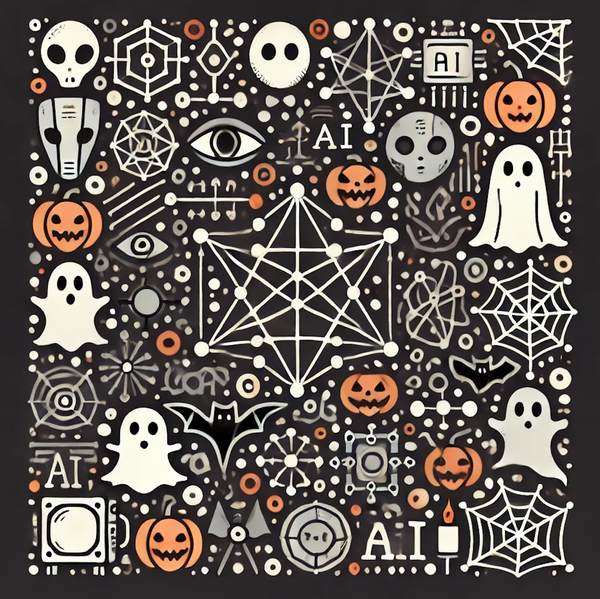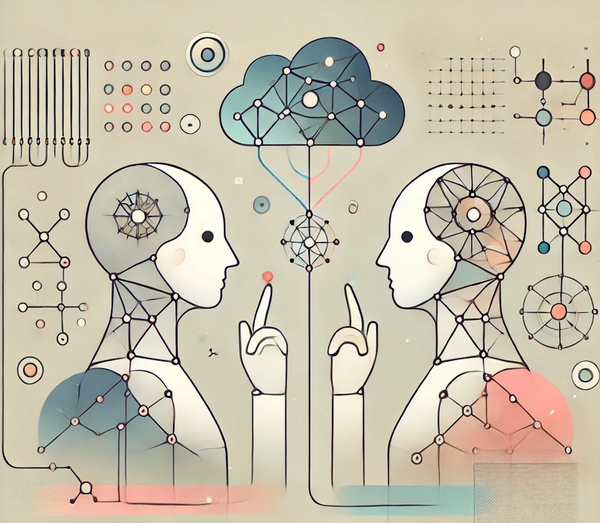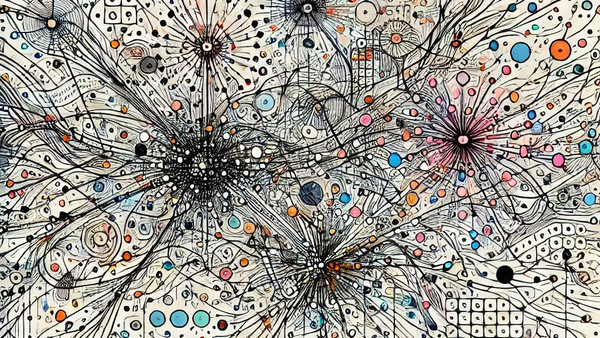Contours of Consciousness

Like space itself, the reaches of humanity are expanding. Wielding our advanced knowledge and technology, we have ventured into the cosmos. However, we must brace ourselves; earthly assumptions do not apply here. When we find that our assumptions are not consistent with reality, we must forfeit our egos and adopt a new perspective, despite how unintuitive or strange it may seem.
We tend to think about consciousness in a limited and egocentric way. We view ourselves as the peak of what it means to be conscious, and beneath us we see animals as existing on sequentially lower bands of a consciousness spectrum. Along this spectrum we place larger mammals relatively close to humans, smaller mammals and reptiles lower still, and creatures like insects being very far below — if they are on the spectrum at all. While individuals might disagree on the point at which the consciousness spectrum ends, whether it ends with reptiles or insects etc., we tend to agree that this point does exist. This is a sensible way to think about consciousness, as it is consistent with what we are physically capable of observing and understanding in our environment.
However, we must challenge our assumptions and think of what consciousness could be, or what it could look like beyond our perspective and minds. What can we really conclude if we recognize our earthly dispositions and limitations of our cognitive tools — and even our imaginations? How do we even begin to speculate about the truths of consciousness? What if we viewed our interaction with consciousness as a special case, only a subset of its entirety? What do we really know about consciousness?
We know humans are conscious. We also have a strong sense that animals fall on our familiar spectrum of consciousness, especially those we tend to keep as pets. We have this feeling because we have a real sense that animals have emotions, and that they can understand us, but it also makes sense that humans would not be the only creatures from earth to be conscious. Why should we be so special to singularly possess this mighty trait, when all of Earth’s creatures emerged from the same processes? Furthermore we have the sense that, whatever consciousness is, the animals we keep as pets tend to have less of it. While they do seem to understand us, we get the sense they can not fully understand our world, while we can fully understand theirs. Thus not only is consciousness found in ourselves and in animals, but it also appears to be a continuous property. That is, something isn’t just conscious or not conscious, but rather there are degrees of consciousness, i.e. consciousness exists on a spectrum.
The idea of consciousness existing on a spectrum resonates with our experience. Most people do feel that their larger mammalian pets are conscious, but in a lesser sense than themselves, and that further, things like reptiles may also be conscious, but in a lesser sense than larger mammals, and so on. However, when we extrapolate further, down to the realm of microscopic organisms and to individual cells, we seem to hit a mental barrier, that a cell itself cannot have any measure of consciousness. But are we letting our earthly assumptions bleed into a realm we do not fully understand? We observe consciousness existing on a spectrum, how can we possibly say when that spectrum ends? Isn’t an asymptotic behavior of a continuous variable like consciousness more in line with the behavior of other continuous variables in our universe? Say like the forces of gravity or electromagnetism, or the inherent conductivity of a material? While it feels highly unlikely or impossible that individual cells would have any measure of consciousness, to believe the opposite is to deny the simplest explanation of nature.
If we concede that cells do have some measure of consciousness, that our neurons occupy a lower band on the same consciousness spectrum as us, it offers a possible answer of how beings are placed in the consciousness spectrum. That is, our highly conscious mind is so conscious because it is made up of the rapid and complex communication of many lower level conscious neurons, suggesting that perhaps higher levels of consciousness is built from the combined efforts of many lower conscious beings.
We do have examples of this type of behavior in the animal kingdom, most directly in the observed hive mind of ant and bee colonies, which seem to take on very real minds of their own, and do and create things that a single ant or bee never could, and that a single ant or bee cannot fully understand or appreciate. Both type of colonies are examples of many low-level conscious beings, forming a much higher conscious being, so there is reasonable evidence this might be how beings move to higher bands in the spectrum of consciousness.
I believe this behavior or property of ant and bee colonies also refutes the idea that consciousness may arise by a not yet understood biological property. That is, all of our neural communication which does give rise to our mind, is done within the confines of the same biological unit, our brain, and in a purely biological way, via neurotransmitters and this is why our neurons are able to form a collective singular human mind. This is refuted, however, because in the collective minds of ants, the ants are not in a singular biological unit, and communicate using scent, touch, body language and sound suggesting that this emergent property of consciousness is not a biological one, but a physical one.
If we can look down and observe smaller conscious beings coming together to form higher conscious beings, like ants and bee colonies, or neurons and mammalian brains, the next direction to look is up, and to consider if we really are the apex. When we form large groups like nations, or states, or churches or even tightly woven virtual groups are we not a group of conscious beings communicating rapidly with one another, working towards a common cause, just as individual bees form hives? Do we not communicate in similar physical ways as ants, and form a similar type of colony? Does it not stand that just as the ant cannot understand the hive, and the neuron cannot understand our mind, that we cannot understand the very real hive mind we form? The very real hive mind that has its own sense of identity and its own thoughts, just as we have our own identity and thoughts despite being composed of many neurons?
Further, just as we can fully understand our neurons, and how they communicate, but cannot express ourselves to them, despite our willingness to, would it not stand that the collective mind we form is fully aware of us, and how we communicate, but completely unable to explain itself to us? That it forms a type of unreciprocated perception? This concept may seem like simply an abstraction of an idea, but in reality, impossible. But if we pause, and we think, why would this not be true? Humans once thought we were at the center of the universe, is it not just as big of an error to think we are at the peak of consciousness?
As humans we are fascinated with the prospect of meeting extraterrestrial life and have imagined many possibilities for how the meeting would happen, and what the alien life would look like. In these fantasies of meeting alien life, we often imagine them as being different from us in physical form, as it would be extremely improbable for them to look like us, and yet we always imagine them to be in the same region of consciousness as us. Just as space ships meeting in far out space are much more likely to not share the same orientation, aren’t alien beings much more likely to not share the same conscious level as us? Further how can we be so sure extraterrestrial life isn’t trying to communicate with us now, but unable to do so? If we were to visit another planet, and find it occupied with alien ants, how could we possibly communicate with them? No matter how willing we were to do so, what could we possibly say, and how could we in any way express what we were and where we came from? I believe it is much more likely that those that can reach us physically have no way to meaningfully communicate with us in a way that we can understand.
It may be tempting to think that while it is believable that our communication with aliens would be extremely difficult no matter the case, we would still be able to sense them, that is we could see what they look like, we could hear the noises they make, we could at least know they were there. But is that necessarily the case? When two humans are communicating with one another, their respective neurons have no way to sense each other in the way cells can sense other cells, and yet the collective minds the two sets of neurons constitute are very much aware of each other and are having a meaningful conversation. Would it not be the same for earth? Could aliens be communicating with our collective conscious mind right now? And just as the two humans’ neurons cannot possibly understand a human conversation, or even be aware of it, the very real collective mind of humanity is communicating with alien life in a way we cannot possibly understand, and in a manner we cannot see, or hear or sense at all.
While our initial reaction to the idea that humanity exists as only a tiny region on the spectrum of consciousness, with many creatures both above and below us, may seem abstract and impossible in any real sense, if we pause and think only about what is consistent with reality, it seems more probable than not. It seems logical from knowing what we know about our own mind and its constituents that we as humanity form a singular or perhaps many collective minds. Minds that in a very real sense have their own identities and thoughts, that they cannot express to us, no matter how willing, just as we cannot express ourselves or our world to the neurons that make us. It seems in viewing the spectrum of consciousness as a landscape, there are gentle plateaus that creatures exist on, where real communication is possible, like us with larger animals. But there are also sharp cliffs, or contours where meaningful communication is simply impossible. We are doomed to look down from our contour of consciousness and observe those lower than us, able to appreciate them but not communicate. Just as there are those now, from a higher contour, looking down on us, willing, but unable to reveal themselves to us.




